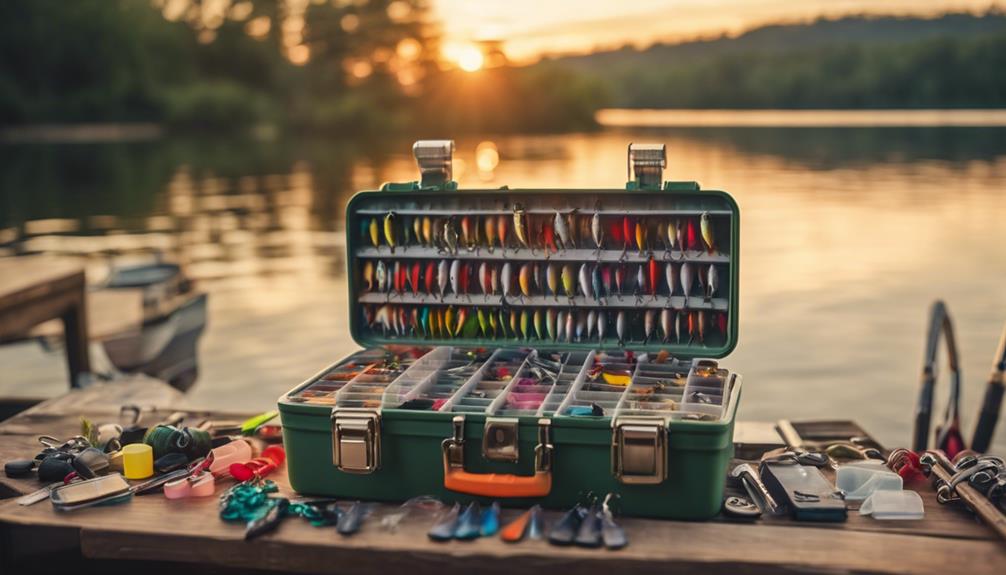Understanding the Importance of a Fishing License
Before we delve into the specifics of how to get a fishing license, it’s essential to understand why obtaining one is crucial for both the angler and the environment. A fishing license serves multiple purposes: it regulates fishing activities, helps conserve fish populations, and ensures sustainable practices. Licensing fees often contribute to conservation efforts and the maintenance of aquatic ecosystems, thereby preserving them for future generations. Whether you’re a seasoned angler or a novice, grasping the significance of a fishing license can enhance your fishing experience and promote responsible fishing practices.
Researching Fishing License Requirements in Your State
Each state in the U.S. has its own specific regulations and requirements for obtaining a fishing license. To begin your journey on how to get a fishing license, it’s crucial to research the local laws in your area. Visit your state’s wildlife or fish and game department website to find detailed information about the types of licenses available, age restrictions, and whether you need a special license for specific species or locations. Understanding these regulations can help you avoid potential fines and ensure that you are fishing legally.
Types of Fishing Licenses Available
When exploring how to get a fishing license, you’ll encounter various types of licenses tailored to different fishing activities. Common categories include freshwater fishing licenses, saltwater fishing licenses, and combination licenses that allow for both. Additionally, many states offer short-term licenses for tourists or casual anglers, as well as annual licenses for more frequent fishers. Some states also provide discounts for seniors, military personnel, or disabled individuals. Knowing which license suits your needs will streamline the application process.
Gathering Necessary Documentation
Once you’ve identified the type of fishing license you need, the next step in how to get a fishing license is to gather the required documentation. Most states will require proof of identity, such as a driver’s license or state ID, and may also ask for your Social Security number. If you are a first-time applicant, you might need to complete a fishing education course, particularly for younger anglers. Ensure that you have all necessary documents prepared to avoid delays in processing your license application.
How to Apply for a Fishing License: Online vs. In-Person
There are typically two primary methods for applying for a fishing license: online and in-person. Many states offer an online application process, which can be the most convenient option for busy individuals. It allows you to complete the application from the comfort of your home and often provides immediate confirmation of your license. Alternatively, you can apply in person at designated locations such as local wildlife offices, bait shops, or other authorized retailers. Consider your preferences and accessibility when deciding on the best method for how to get a fishing license.
Understanding Fishing License Fees
The cost of a fishing license can vary significantly depending on your state, the type of license you choose, and your residency status. Most states offer resident rates, which are typically lower than non-resident fees. Additionally, annual licenses may be more economical for frequent fishers, while temporary licenses might be suitable for those fishing occasionally. Be sure to check for any additional fees, such as processing fees for online applications. Understanding the financial aspect of how to get a fishing license can help you budget effectively for your fishing adventures.
Staying Updated on Fishing Regulations
Obtaining a fishing license is just the first step in your fishing journey. It’s essential to stay updated on local fishing regulations, including seasonal limitations, catch limits, and specific rules for different bodies of water. These regulations can change annually or even seasonally, so make a habit of checking for updates on your state’s fish and wildlife department website. Being informed about the rules will not only keep you compliant but also contribute to sustainable fishing practices that protect fish populations and their habitats.
Enjoying Your Fishing Experience Responsibly
Now that you are equipped with knowledge on how to get a fishing license, it’s time to hit the water! Remember that responsible fishing extends beyond simply having a license. Practice catch and release where applicable, respect local wildlife, and adhere to all fishing regulations. Always clean up after yourself and consider participating in local conservation efforts. By doing so, you contribute to the health of our aquatic ecosystems and help ensure that fishing remains a beloved pastime for generations to come.
In conclusion, understanding how to get a fishing license is essential for any angler looking to enjoy their hobby legally and responsibly. By following the steps outlined above, you can ensure a smooth application process and a rewarding fishing experience. Whether you’re casting your line in a serene lake or the open ocean, your fishing license is a ticket to adventure and conservation. Happy fishing!
